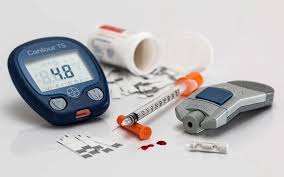Managing diabetes may involve various strategies that focus on maintaining blood sugar levels within a healthy range. Doctors play a significant role in helping patients establish effective routines and providing tools to manage this condition. Below are six ways healthcare professionals support individuals in managing diabetes.
Developing Personalized Diabetes Care Plans
Doctors work closely with patients to develop tailored care plans that address their unique needs. After evaluating a patient’s medical history, lifestyle, and the type of diabetes they have, your doctor may design a plan that aligns with their individual health goals. This may include recommendations for dietary changes, physical activity, and medication if needed. Regular follow-ups allow doctors to make adjustments to the plan based on progress.
Monitoring Blood Sugar Levels and Patterns
Regular monitoring of blood sugar is a core component of diabetes management. Doctors can provide guidance on how to monitor glucose levels at home using devices like glucometers or continuous glucose monitors (CGMs). By reviewing self-monitored data alongside lab results such as A1C levels, doctors can identify patterns or trends in glucose levels. This information may help in adapting treatment approaches and identifying what works well over time.
Providing Medication Guidance
For many individuals with diabetes, medication can play a key role in maintaining stable blood sugar levels. Doctors may prescribe treatments such as insulin or oral medications to regulate glucose effectively. They also explain how and when to take these medications, making sure patients follow the correct dosages. Regular assessments allow doctors to determine whether certain medications should be adjusted, changed, or supplemented based on how the body responds.
Offering Nutritional Counseling
Nutrition is a key component of diabetes care, and doctors may work with registered dietitians to assist their patients. Nutritional counseling can provides education on the following:
- Balancing carbohydrates, proteins, and fats in meals to manage blood sugar effectively.
- Learning how to portion meals.
- Timing their food intake
- Making informed choices when eating out. These sessions help individuals understand how food influences their condition and allows them to make better daily decisions.
Preventing and Managing Diabetes-Related Complications
Doctors may focus not only on immediate management but also on preventing complications that could arise from prolonged high blood sugar levels. This includes conducting routine screenings for issues such as eye problems (diabetic retinopathy), nerve damage (neuropathy), or kidney concerns. Early detection allows timely intervention to prevent further complications.
Encouraging Lifestyle Modifications
Lifestyle adjustments can often play a role in effective diabetes management. Doctors guide patients on how physical activity can improve insulin sensitivity and lower glucose levels. Quitting smoking, reducing stress, and maintaining a consistent sleep schedule are areas of focus as well. These modifications contribute positively to long-term health outcomes and complement other management strategies.
Partner With Your Doctor for Better Diabetes Care
A successful approach to diabetes management involves teamwork between patients and healthcare professionals. Doctors provide valuable insights, tools, and support to help individuals stay on track with their health goals. If you are living with diabetes, schedule a consultation with your healthcare provider to create or refine your management plan.
- Best Practices for Optimal Eye Care in Your Daily Life
- Integrating IV Therapy With Local Health Retreats for an Enhanced Wellness Experience in Temecula
- Recognizing the Symptoms of a Rotator Cuff Tear
- Tips for Managing Pain Post-Gallbladder Surgery
- How to Prepare for Your First Visit to a Dermatologist

Leave a Reply